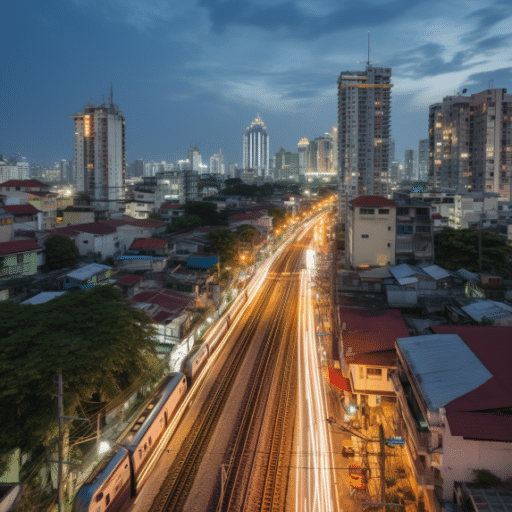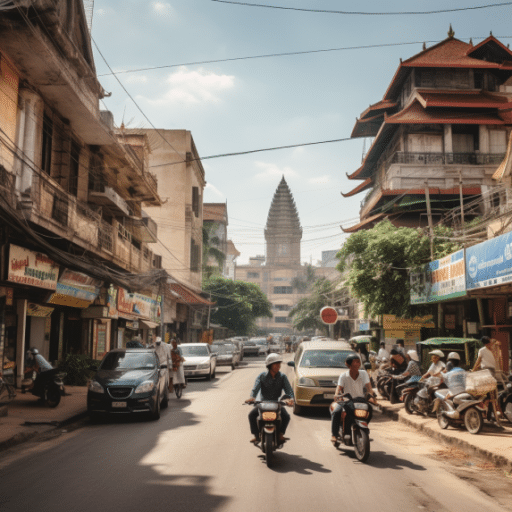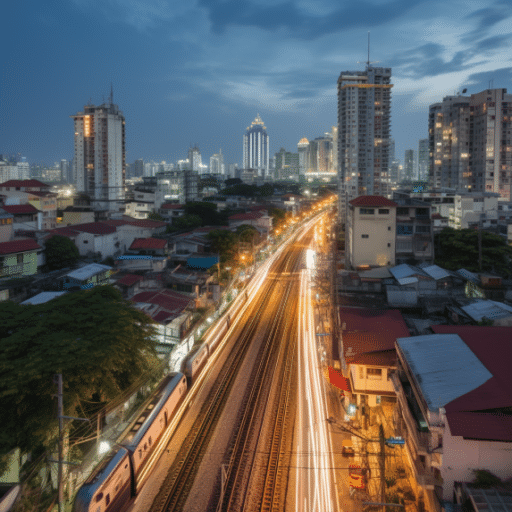This article was updated on January 14, 2021
Brewin Dolphin Funds Review – that will be the topic of today’s article.
I will, therefore, continue my review of some investment funds, widely sold in the expat market.
For those that are interested in investing you can email me at advice@adamfayed.com or use the chat function below.
Who are Brewin Dolphin and where are they sold?
Brewin Dolphin are an asset management firm that has existed since 1762. They are now listed on the London Stock Market. They originally started in the UK and have since expanded globally. Increasingly, they are sold within expat investments, in places such as Singapore, Hong Kong and beyond.
In recent times, Brewin Dolphin have partnered with many firms, to try to offer different kinds of investments, with different risk appetites, combining active and passive investments.
The company has around 50 billion USD assets under management globally.
What are the fees associated with these investments?
Within the UK, the fees are often low – as little as 0.50% per year. Within expat investments, however, there are typically a lot more fees, which add up over time.
What are some examples of their funds?
On their managed portfolio services, they have cautious, income, balanced growth and global equity. Let’s take their high risk portfolio as an example. 40% of the fund is linked to a UK index-fund – Fidelity Index UK Fund Inc GBP.
Then 21% is linked to another index – the Fidelity Index US Fund Inc GBP. 1% is left in cash and 4% is in bonds. The more cautious portfolios have more bonds and other investments.
What has the performance been like?
Compared to many other expat investments, the performance has been pretty good, at least the gross returns. The most adventurous funds are up about 350% in British Sterling terms since 2013, whilst the cautious funds are up by over 200%.
However, as these investments are sold within various expat investments platforms and life insurance companies, and often are just one component of a wider portfolio, the performance expat investors have faced is often much lower.

What can you do if you aren’t happy and have an expat investment?
If you have an underperforming expat portfolio with Brewin Dolphin, you essentially have 3 options available to you. You can completely exit the investment, although penalties might be applied for doing so,
You can often partially exit the investment, meaning if you have $100,000 in your portfolio, you can take out a certain percentage, without penalty. Finally, you can simply change the funds within your existing portfolio, to lower the cost.
A lot of this depends on which platform and provider you are using. Some platforms have higher exit charges for leaving.
What are your contact details if I want you to review my expat portfolio?
advice@adamfayed.com is my main email address.
Further reading
I am the most viewed writer on Quora.com for personal finance and investing with over 221 million answer views.
In the answers below I focused on:
- Is $1m enough to retire in the UK, the US, Canada and most developed countries these days?
- How about if you have $5m or $10m invested or saved up – is it enough for a luxury retirement?
- Is $300,000 enough to retire in a place like Thailand, Cambodia and other countries in South East Asia?
- How much do you need to retire early and is it a good idea to begin with?
Here is a preview of one of my answers
Here are some options:
Thailand:
Thailand now has a huge retirement population. Hot weather, good food and great beaches make life here easy for many., Bangkok, Hua Hin, Chiang Mai, Chang Rai and Phuket are all popular expat destinations.

Medical facilities in Thailand are world-class, so much that Thailand is now a health tourism location. With world-class facilities offering heart bypass’ from $10,000, you can see why.
Expats coming from the UK and Europe are better off still getting expat insurance though, and for the over 65s, this will cost at least $200-$300 a month, so is a substantial extra cost compared to being in the UK or Spain. If you have pre-existing conditions, moreover, you may not get insured.
To get a retirement visa, there are some financial requirements. You need to have a bank account with THB 800,000 (about $25,000) and double that (close to $50,000) for a couple, or a monthly income of THB 65,000 (around $2,000 a month), or a combination of a bank account and income that exceeds THB 800,000.
After meeting this requirement, you must then obtain a one-year retirement visa. To get this you must be 50, have a Thai bank book and a letter from your bank in Thailand. In addition, you will need to provide pictures, a passport and departure cards.
You will also need to get an `extension of stay’ notice and a re-entry permit. This will allow you to re-enter the country if you leave it. Finally, you must report to immigration every 90 days to check in and verify the address you are living in. If you have ever been deported from Thailand or had any sort of criminal history you may not get the visa.
For people under 50 who are financial independent and retired, you will need to find another solution. One is to enroll on a Thai language course or another education course. Spend a limited amount of money, and get a student visa. In 2017, a `digital nomad visa` was introduced. Called a Smart Visa, it is designed for business people.
They have currently limited the applicants to startup business owners, investors, high-level executives, or other highly-skilled professionals. Visa rules are always changing, but if you have a decent budget and you are under 50, you should be able to get a visa. Spending 2-3 months a year in Thailand on a tourist visa if you live elsewhere in SE Asia, is very easy.
One of the biggest mistakes I have seen in Thailand is underestimating costs. Many Thais live off $1,000 a month or less, and you can too. But this doesn’t include luxuries. To travel a bit domestically and internationally, sometimes eat out, get insured and so on will cost you between $1,500-$2,500 depending on your tastes and expectations. A luxury retirement with maids and big house, may cost at least $4,000-$5,000 a month.
Indonesia
I lived in Jakarta in 2013-2014. Indonesia does attract expats as it is the biggest economy in South East Asia. Jakarta is an expat destination but not a retirement destination. It has some of the worst traffic I have seen, prices are expensive (especially for alcohol) and it is a business city.
Bali and some other beach resorts, in comparison, are laid back and cheaper. You can live in Bali in a villa and enjoy a luxury lifestyle of spas and massages, all for $2000. A more modest lifestyle can be had for $1,000-$1,500.
What did surprise me about Indonesia was how strict immigration can be. I found Indonesians some of the friendliest people I have met, but immigration at the airport were an exception. It was curious for me, as for most foreigners from high-income countries, why would they go to Indonesia on a tourist visa to take money from the non-existence Indonesian welfare system?
Based on that experience, it shouldn’t come as a surprise that there are numerous requirements to retire in Indonesia. In Indonesia, the age in which you can get a retirement visa is 55, 5 years older than Thailand. The other requirements include:
• Possess a passport or travel documents with more than 18 months remaining validity
• Copy of all passport pages
• A copy of your resume
• A copy of your marriage certificate, if you are married
• Proof of $18,000 per year of income. This will come from statements from your bank or investment funds. Married retired couples must both prove an individual income of $1500/month and apply separately.
• Proof of medical/health Insurance, life insurance, and third-party personal liability insurance in country of origin or Indonesia
• Statement of living accommodation in Indonesia. Minimum cost of US$35,000 if purchased house/apartment or, a minimum rental cost of US$500/month in Jakarta, Bandung, and Bali; US$300/month for other cities in Java Island, Batam, and Medan, and other cities a minimum US$ 200/month.
• Statement to declare intent to employ an Indonesian maid and/or driver whilst living in Indonesia
• Payment of Immigration Fee based on effective regulations
• You must sign a lease for housing with a minimum one year period. Alternately you can supply proof that you own a house under an Indonesian spouse’s name.
Cambodia
Cambodia is an off-the-beaten-track location, but is up and coming. People are friendly, it is cheap, growing fast and has an easy visa system. Retirees can come to the airport and get a business visa on arrival, and then renew for up to 2 years a time. Kep and Kampot, moreover, are more relaxed than Phnom Penh or Siem Reap.

Having lived in 5 countries, visited 35 and visited more than 200 cities, I haven’t seen a place as good value as Phnom Penh for some things. Not cheap, but good value. Basic goods like water are more expensive than China or Thailand, but you can go to an excellent French or other international restaurant for lunch for $10. And that is for three courses! A traditional Khmer massage can cost you $6-$7 including a tip.
Sihanoukville has a sleazy reputation, but like Pattaya, has been trying to change its image. Some of the beaches are beautiful. It doesn’t have the same amenities as Phnom Penh or Siem Reap, but it does offer a more relaxed lifestyle.
Malaysia
One of the big positives about Malaysia is that they do have a specific retiree scheme. Started in 1997, it has become popular in particular amongst British retirees, which is unsurprising, given that Malaysia is a former UK colony. That fact means that over 90% of Malaysians speak fluent English. Coupled with the golf courses, natural scenery and excellent climate, this puts Malaysia high on an expat retirees list.

Under the My Malaysia Second Home Program, expats pay a one off fee of $3,000. The program then helps expats get a 10 year visa, and also helps with housing. Like Indonesia, the capital city is more expensive, but the traffic situation is much better. Outside the capital, expat retirees can buy a house for $75,000-$150,000.
Penang is a good destination for retirement. Cheaper and more laid back than Kuala Lumpur, with a good climate and the same excellent food, it offers retirees a great standard of living.
Vietnam
Vietnam doesn’t have as easy visa situation as Cambodia or Malaysia for retirees. But Vietnam is currently in the `sweet spot` of development in HCMC, the most developed city in Vietnam. It is still cheap, but it is developed enough to offer extra conveniences compared to Cambodia, such as readily available taxis and cheaper consumer goods due to economies of scale and other issues.

Even though Vietnam doesn’t currently offer retirement visas, it is relatively easy to stay on tourist and business visas long term. Another negative about Vietnam, is like Cambodia, excellent healthcare can only be found in bigger cities such as Ho Chi Minh. Thailand offers world-class healthcare these days, and health tourism has been their reward. If you get sick or need certain medicines, Vietnam isn’t the best option, even if you get expat medical insurance.
According to International Living (https://internationalliving.com/…), Vietnam comes way down the list when considering a good place to retire. Having said that, I would say most expats (both retirees and working age individuals) seem happy in Cambodia and Vietnam, if they can get used to the way of living.
Spain, Portugal and Greece
Spain is arguably the `original` retiree destination for British, Dutch, Germany and Scandinavian expats. With cheap or subsidized healthcare if you are from the EU (at least for British people until March 2019!), Spain can actually compete on cost with Thailand and Cambodia once you factor in this benefit.
With relatively good costs in some parts of the country, excellent climate and proximity to other European countries, Spain, Greece and Portugal will continue to be popular expat destinations.
In Portugal, retirees outside the EU usually hold Type I visas. That visa requires people to show proof of private health insurance valid in Europe, as well as proof of sufficient funds to support living and a criminal background check. After five years’ residence in Portugal, retirees can apply for a permanent residence visa, with associated healthcare benefits.
Portugal has a great reputation of having friendly locals, an easy-going lifestyle and ease of opening bank accounts. Against that, driving is supposed to be dangerous and Portuguese is a more difficult language to learn for many expats compared to Spanish and French, but that will depend on your native language.
Bulgaria
Also in the EU, but certainly not a traditional retirement destination, Bulgaria is an up-and-coming retirement destination. With houses from $55,000, cheap costs and an ever increasing expat community, Bulgaria’s expat community is likely to continue to grow. Similar to Cambodia within Europe, in some ways.
One of the advantages of Bulgaria is it is in the EU, so expats from other EU countries don’t require visas. Non-EU citizens who are retired in their home country can apply for a Bulgarian Pensioner D visa and temporary residence permit. Documents submitted to the embassy will include:
- Documents showing you are entitled to a retirement income, legalized with a notary public.
- Document from a bank in Bulgaria ascertaining that the application has a valid bank account in Bulgaria, where regular transfers can be made
- Evidence of address in Bulgaria
- Medical insurance
Mexico/Dominican Republic/Panama/Costa Rica :
For Americans and Canadians, Mexico and the Dominican Republic are good destinations. The visa situation is very favorable in Dominican Republic, with even overstayers fined a relatively small amount of money.
Mexico has an easy-going lifestyle, but many people are worried about safety. Most of the crimes are committed by people who know each other, such as gang members, so retirees aren’t usually targeted.
For Americans all over the world, getting expat insurance will be cheaper than back home. From experience, most Americans are happier with the overseas insurance situation compared to Europeans. For British people who have grown up in a system where healthcare is free at the point of use, people can feel it is an extra cost.
One of the advantages of retiring in Panama is that you only need to prove funds of $600 a month. That doesn’t mean that it is recommended that you can only live on $600 a month in Panama, but it does show the rules are less strict than elsewhere.
To read more click below:
Further Reading:
What are the Best Investment Options for American Expats in 2023 offers tailored investment considerations.



